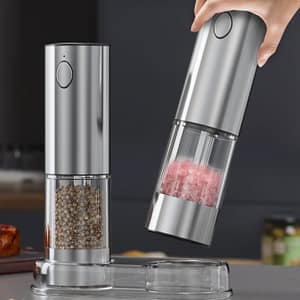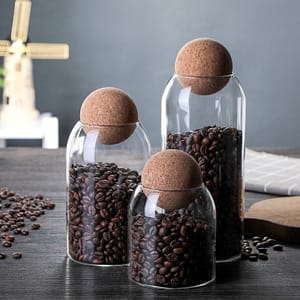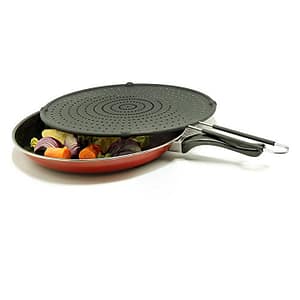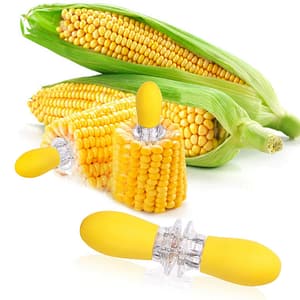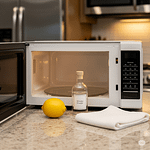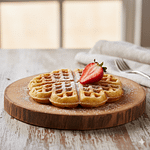
Blog Details
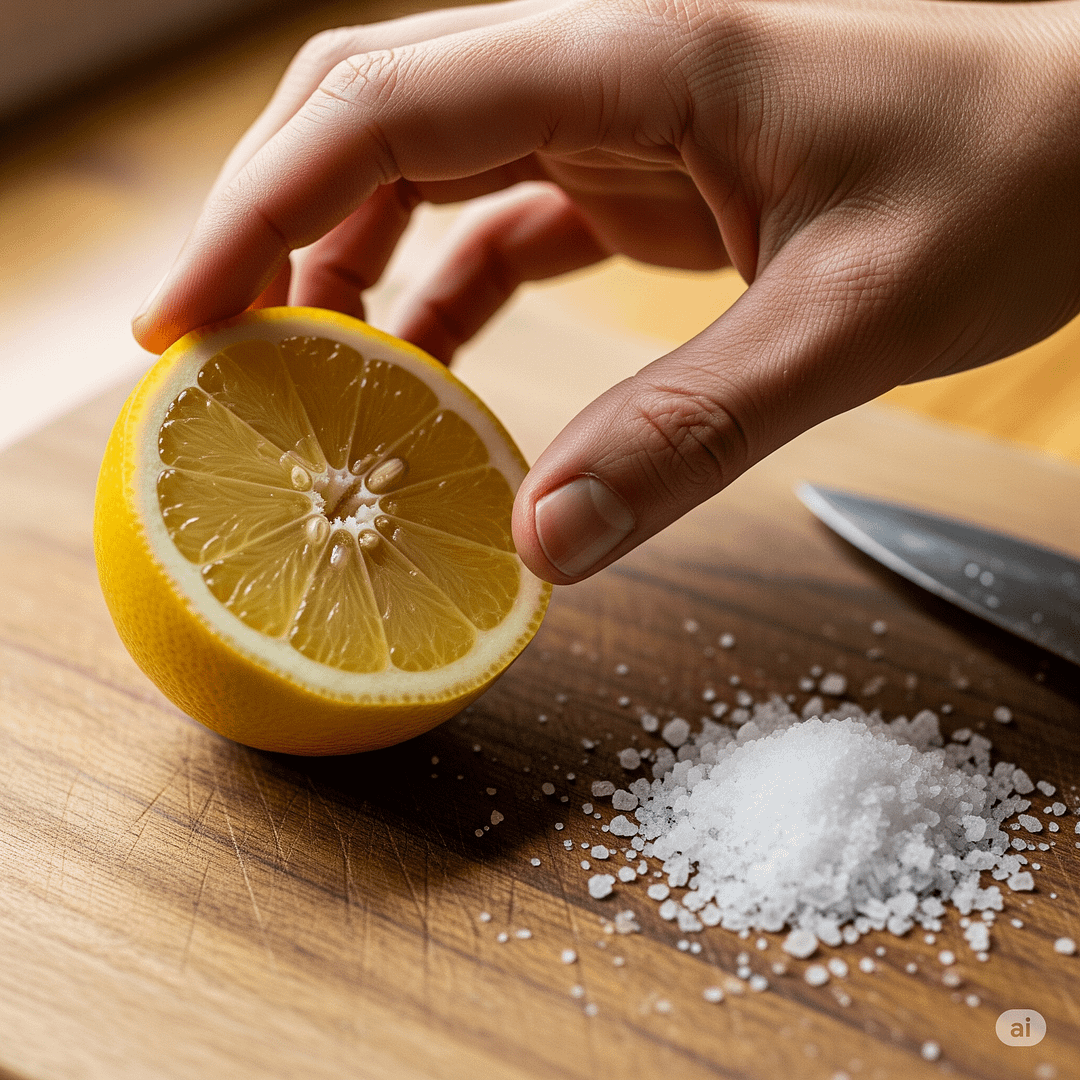
3 Steps to Remove Garlic Smell from Your Wooden Cutting Boards
A well-seasoned wooden cutting board is a kitchen essential, but its porous nature makes it a magnet for strong food odors. The pungent smell of garlic and onions can linger for days, tainting other foods and even making your kitchen feel less fresh.
The good news is that you don’t need harsh chemicals to fix this. With a few simple, natural ingredients you likely already have on hand, you can effectively and safely deodorize your wooden cutting board. In this post, we’ll walk you through the simple steps to banish those stubborn smells for good.
The Problem: Why Wooden Boards Absorb Odors
Wood is a porous material, meaning it has tiny holes and crevices where bacteria and food particles can settle. While this can be a good thing (wood has natural antibacterial properties), it also means that the strong-smelling oils from foods like garlic, onions, and fish can seep into the grain of the wood and become trapped. A thorough wash with soap and water may clean the surface, but it often isn’t enough to pull out the embedded odors.
The Simple, 3-Step Deodorizing Hack
This method is highly effective and uses a combination of natural abrasives and acids to lift stubborn smells.
Step 1: The Salt and Lemon Scrub
- You’ll Need: Coarse salt (kosher salt works best) and half a lemon.
- Method: Sprinkle a generous amount of coarse salt over the entire surface of your cutting board. Then, take the cut side of the lemon and use it to scrub the salt into the wood. The salt acts as a gentle abrasive, while the citric acid in the lemon helps to neutralize odors and lift stains. This is the most effective way to remove embedded smells like garlic and onion.
Step 2: The Baking Soda Paste (Optional but Recommended)
- You’ll Need: A few tablespoons of baking soda and a small amount of water.
- Method: For particularly stubborn smells, create a thick paste with baking soda and water. Rub the paste over the entire board, let it sit for 5-10 minutes, and then rinse. Baking soda is a powerful natural deodorizer that will absorb any lingering smells the lemon and salt may have missed.
Step 3: A Final Wash and Oil
- You’ll Need: Warm, soapy water and mineral oil (or another food-safe oil).
- Method: After the scrub, give your board a final rinse under warm water. Dry it immediately with a clean towel. Never soak a wooden cutting board, as this can cause it to warp or crack. Once the board is completely dry, apply a food-safe mineral oil to a clean cloth and rub it into the wood. This will rehydrate the wood, protect it, and help it resist future stains and odors.
How to Keep Your Board Odor-Free
- Clean Immediately: Don’t let food sit on the board for long. Clean it as soon as you’re done using it.
- The Buttermilk Soak: For a weekly refresh, you can leave your board to sit in a bath of buttermilk for a couple of hours. The acid will help neutralize any lingering odors.
- Designate Boards: Use a separate, non-porous board (like plastic) for strong-smelling ingredients like onions and garlic, and save your wooden board for bread, vegetables, and less pungent items.
Frequently Asked Questions (FAQ)
Can I use bleach to clean my cutting board?
While a diluted bleach solution can be used for sanitizing, it can also dry out and damage the wood. For odor removal, natural solutions like lemon and salt are safer and more effective.
What is the best oil for my cutting board?
Food-safe mineral oil is the best choice. It won’t go rancid and is easily absorbed by the wood. Avoid using vegetable oils like olive oil or canola oil, as they will go bad over time and develop a sticky, unpleasant smell.
How often should I deodorize my cutting board?
Deodorize your board as needed, especially after using it for strong-smelling ingredients. For general maintenance, a monthly salt and lemon scrub followed by a mineral oil application is a great routine to keep your board in top condition.
Will this method work on plastic cutting boards too?
Yes, the lemon and salt scrub works great on plastic cutting boards as well, but you can also simply soak plastic boards in a solution of baking soda and water to remove stubborn odors.
Related Blog Post You Might Enjoy:
Our Products
-
Unique Book Coffee Cup – Stack of Books Design
₹1,681.00 – ₹1,695.00Price range: ₹1,681.00 through ₹1,695.00 Select options This product has multiple variants. The options may be chosen on the product page -
Salt & Pepper Electric Grinder – Rechargeable
₹2,435.00 Select options This product has multiple variants. The options may be chosen on the product page -
Glass Storage Jar – Cork Lid & Minimalist Design
₹2,563.00 Select options This product has multiple variants. The options may be chosen on the product page -
Food grade Silicone Splash Screen – Mess-Free Cooking
₹2,158.00 Select options This product has multiple variants. The options may be chosen on the product page -
Stainless Steel Corn Cob Holders – Mess-Free
₹1,086.00 Select options This product has multiple variants. The options may be chosen on the product page -
Silicone Donut Mold – Makes 6 Non-Stick Donuts
₹833.00 Select options This product has multiple variants. The options may be chosen on the product page
Products
-
Unique Book Coffee Cup – Stack of Books Design
₹1,681.00 – ₹1,695.00Price range: ₹1,681.00 through ₹1,695.00 Select options This product has multiple variants. The options may be chosen on the product page -
Salt & Pepper Electric Grinder – Rechargeable
₹2,435.00 Select options This product has multiple variants. The options may be chosen on the product page -
Glass Storage Jar – Cork Lid & Minimalist Design
₹2,563.00 Select options This product has multiple variants. The options may be chosen on the product page -
Food grade Silicone Splash Screen – Mess-Free Cooking
₹2,158.00 Select options This product has multiple variants. The options may be chosen on the product page




